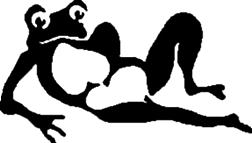
About High/Coo Press & Brooks BooksBrooks Books, formerly High/Coo Press, publishes English-language haiku books, chapbooks, magazines and bibliographies. Founded in 1976 by Randy and Shirley Brooks, our goal is to feature the individual haiku as a literary event. Brooks Books promotes the well-crafted haiku, with sensual images honed like a carved jewel, to evoke an immediate emotional response as well as a long-lasting, often spiritual, resonance in the imagination of the reader. Brooks Books wants to rebuild the value of poetry, both to the reader and the writer. We do not give our publications away. We pay authors to publish their haiku, but we give away no free copies of the publication. Brooks Books exists to publish appreciated books and journals of excellent haiku. We are proud of the fact that our readers value our publications enough to buy them. We publish only a few haiku in each of our publications. Brooks Books serves a readership loyal to our highly selective editing. Some haiku publications over-publish by including hundreds of haiku in a single publication, which forces the reader to become the editor or judge, choosing favorites, revising, or basically giving up the process of enjoying evocative haiku. Our publications are enjoyed and celebrated rather than skimmed, thumbed or analyzed. Our readership expects the highest quality haiku which we provide in small quantities, published with dignity and plenty of space for each haiku. Poetry is suffering from a severe loss of readership. Schools have driven students away from the enjoyment of poetry and haiku with teachers' over-emphasis on critical analysis and short-term writing exercises based on shallow definitions of poetic form. Free verse poets, with their over-emphasis on shocking subject matter and self-expression, have abandoned the disinterested public. In contrast, the haiku community thrives, without government subsidy, and despite the shallow treatment of poetry and haiku in our schools. Haiku writers attempt to share moments of insight and keen perception of ordinary, daily experiences—not proclaiming the alienated voice of a poetic self. Haiku writers and readers come from all walks of life, but they write and read for the love of it.
|